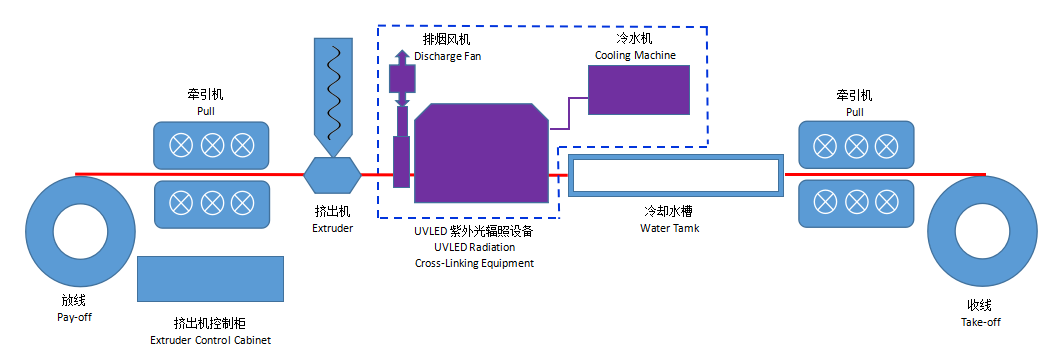Custom Electronic Universal Testing Systems for Comprehensive Material Evaluation Solutions
Custom Electronic Universal Testing Machines Revolutionizing Material Testing
In the realm of material testing, the significance of precision and adaptability cannot be overstated. Industries ranging from aerospace to construction rely on the mechanical properties of materials to ensure safety, durability, and functionality. Enter custom electronic universal testing machines (UTMs) — sophisticated devices that have revolutionized the way we evaluate materials under various stress and strain conditions.
What is a Universal Testing Machine?
A universal testing machine is a versatile apparatus used to test the mechanical properties of various materials, including metals, plastics, and composites. These machines can apply controlled tensile, compressive, and flexural forces to a specimen, allowing engineers to gather critical data on elasticity, tensile strength, yield strength, and elongation at break. The versatility offered by universal testing machines makes them vital in research and quality assurance across multiple sectors.
The Importance of Customization
While standard testing machines are widely utilized, the demand for custom electronic UTMs is on the rise. The reason is simple one size does not fit all. Each material and application may present unique challenges that generic machines cannot address effectively. Custom UTMs are designed with specific requirements in mind, allowing for modifications in load capacity, speed, clamp type, and software integration. This ability to tailor the testing apparatus to specific needs enhances the accuracy and relevance of test results.
For example, in industries where material properties may vary significantly based on environmental conditions, customized machines can be equipped with temperature and humidity control systems. Such features ensure that testing is conducted under conditions that closely mimic actual use, providing more reliable data for product development and quality assurance.
Advanced Electronic Integration
Modern universal testing machines are increasingly incorporating electronic components and software to enhance functionality and user experience. Custom electronic UTMs utilize advanced data acquisition systems to provide real-time monitoring and assessment of material performance under load. This electronic integration allows for the automation of testing processes, improving efficiency and reducing the likelihood of human error.
custom electronic universal testing machine

Moreover, sophisticated software solutions can analyze test results in depth, allowing engineers to visualize data through graphs and charts. This advanced analysis helps in understanding material behavior under different loads and conditions, aiding in design enhancements and material selection processes.
Applications of Custom UTMs
The applications of custom electronic universal testing machines are vast and varied. In the aerospace industry, where the strength-to-weight ratio is paramount, custom UTMs can test composite materials used in aircraft components. By subjecting these materials to controlled tensile and fatigue testing, engineers can optimize designs for better performance and safety.
Similarly, in the automotive sector, custom UTMs play a crucial role in ensuring that car components meet stringent safety standards. By testing materials under different stress conditions, manufacturers can ensure that their products can withstand real-world applications without failure.
Construction and civil engineering also benefit significantly from the use of custom UTMs. For instance, the compressive strength of concrete and the tensile strength of steel reinforcements are critical metrics in determining the integrity of structures. Custom machines can facilitate such tests, ensuring that construction materials meet regulations and standards.
The Future of Testing
The future of material testing lies in the ability to innovate and adapt. As industries continue to evolve, so too will the demands placed on material testing equipment. Custom electronic universal testing machines represent a leap forward in this regard, combining the need for precision with the flexibility required to meet diverse testing scenarios.
Ultimately, the role of custom UTMs in material testing is not just about compliance and quality control; it’s about fostering innovation and creating superior products. As technology continues to advance, the integration of machine learning and artificial intelligence into testing processes may further enhance the capabilities of these machines, leading to even more sophisticated testing scenarios.
In conclusion, custom electronic universal testing machines are not merely tools; they are essential partners in the quest for material excellence across industries. The adaptability, precise control, and advanced data analysis capabilities they offer are redefining how we approach material testing, ensuring that modern materials meet the rigorous demands of their applications. As we look to the future, the role of these machines in enhancing quality and safety will undoubtedly become even more critical.
-
Why the Conductor Resistance Constant Temperature Measurement Machine Redefines Precision
NewsJun.20,2025
-
Reliable Testing Starts Here: Why the High Insulation Resistance Measuring Instrument Is a Must-Have
NewsJun.20,2025
-
Flexible Cable Flexing Test Equipment: The Precision Standard for Cable Durability and Performance Testing
NewsJun.20,2025
-
Digital Measurement Projector: Precision Visualization for Modern Manufacturing
NewsJun.20,2025
-
Computer Control Electronic Tensile Tester: Precision and Power for the Modern Metal Industry
NewsJun.20,2025
-
Cable Spark Tester: Your Ultimate Insulation Assurance for Wire and Cable Testing
NewsJun.20,2025
 Copyright © 2025 Hebei Fangyuan Instrument & Equipment Co.,Ltd. All Rights Reserved. Sitemap | Privacy Policy
Copyright © 2025 Hebei Fangyuan Instrument & Equipment Co.,Ltd. All Rights Reserved. Sitemap | Privacy Policy
